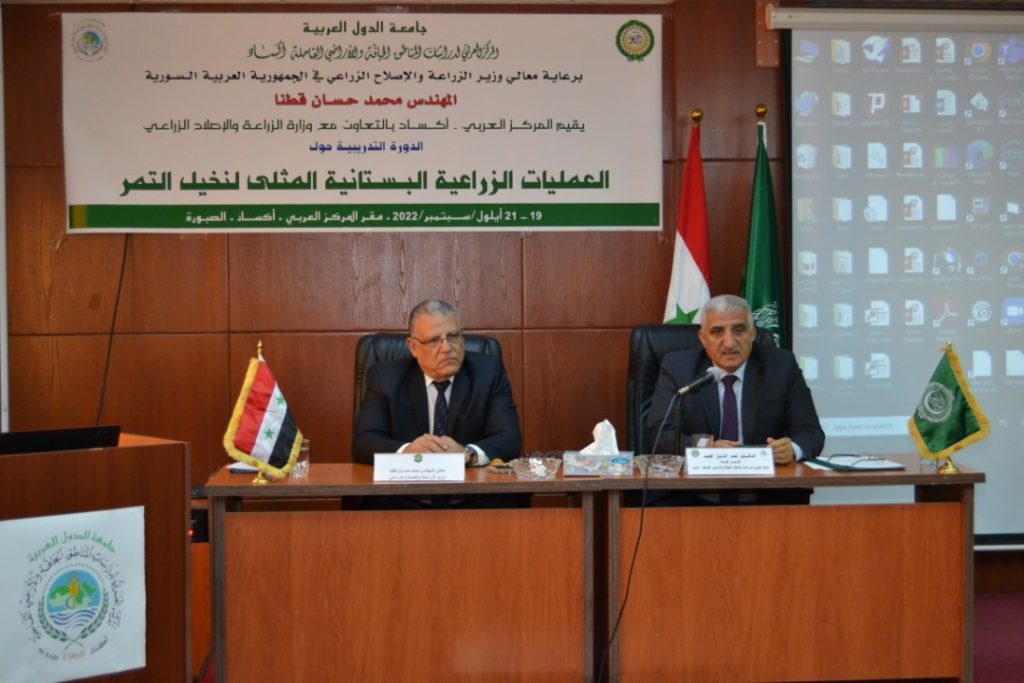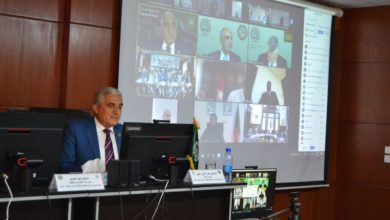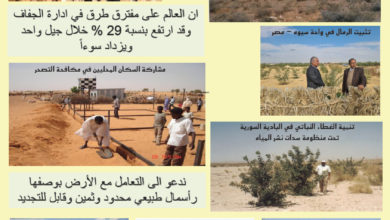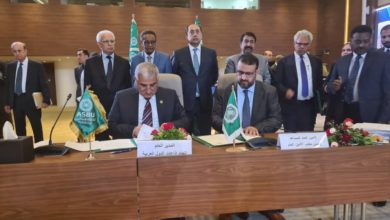A training course at ACSAD under the auspices of his Excellency the Minister of Agriculture and Agrarian Reform under the title “Optimal Horticultural Agricultural Operations for Date Palms”
Under the patronage of his Excellency the Minister of Agriculture and Agrarian Reform Eng. Mohammad Hassan Qatana, and in the presence of his Excellency Dr. Naser Aldin Al-Obaid Director General of ACSAD, the training course in the field of optimal horticultural agricultural operations for date palms was opened for fifteen trainees from the plant production Directorate in the Ministry of Agriculture and Agrarian Reform and the organization of the Arab Center for the Studies of Arid zones and Dry lands “ACSAD”, with the aim of developing the expertise, knowledge and skills of the trainees in the correct application of terrestrial and vertical palm three service operations, traditional and modern palm propagation methods by tissue culture, the establishment of modern orchards, good agricultural practices and operations reap dates and post-harvest transactions.
This course aims to review the preparation of the project to expand palm cultivation in the Syrian Badia, Deir Ezzor and Palmyra, in order to direct agricultural investments in this field, which was one of the outputs of the agricultural forum, (challenges and opportunities), which resulted in many programs, activities, procedures and policies to implement investment projects.
Dr. Naser Aldin Al-Obaid explained in his speech that this training course comes in implementation of the pioneering role played by ACSAD in the development of palm cultivation in the Arab region, where he has worked for thirty years to implement scientific activities and development projects, and to hold workshops and training courses, aimed at to raise the reality of palm trees in the Arab region.

He stressed the importance of this blessed tree in dry areas for Arab food security, explaining that ACSAD contributed to conducting many studies in Syria, including an analytical study of agricultural systems, assessment of the economic and social repercussions of the obstacles facing the date palm in Syria, the selection of 10 distinct seed palm lines with their qualitative and productive specifications, and the issuance of Atlas of palm varieties in Syria.
Dr. Al-Obaid said that ACSAD contributed to the project to develop vertical and ground palm orchards service operations to increase production and improve quality, which was implemented in 11 Arab countries including Syria, during the period 2016 – 2020, in increasing production and improving the quality of fruits compared to the production of orchards for which traditional services are provided.
This course will last for three days, during which a group of ACSAD experts will present lectures on various theoretical and applied topics, focusing on palm propagating by traditional and modern methods, establishment of orchards, palm head service operations, optimal ground fertilization, foliar fertilization, the most important pests and major insects for palms, integrated management of the red palm weevil and improving efficiency of irrigation and harvesting and post-harvest operations.



